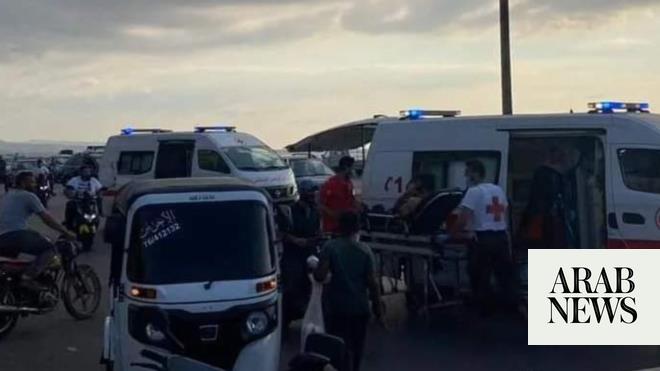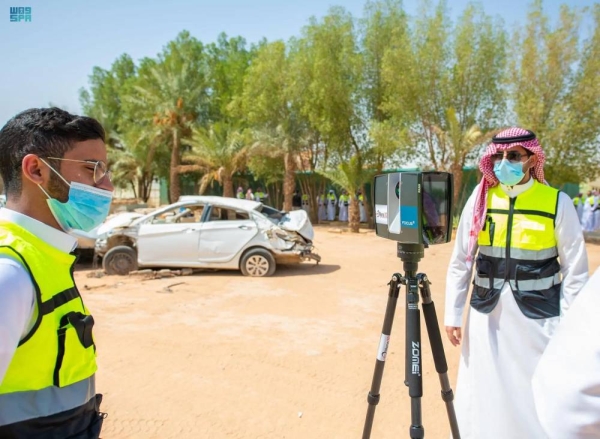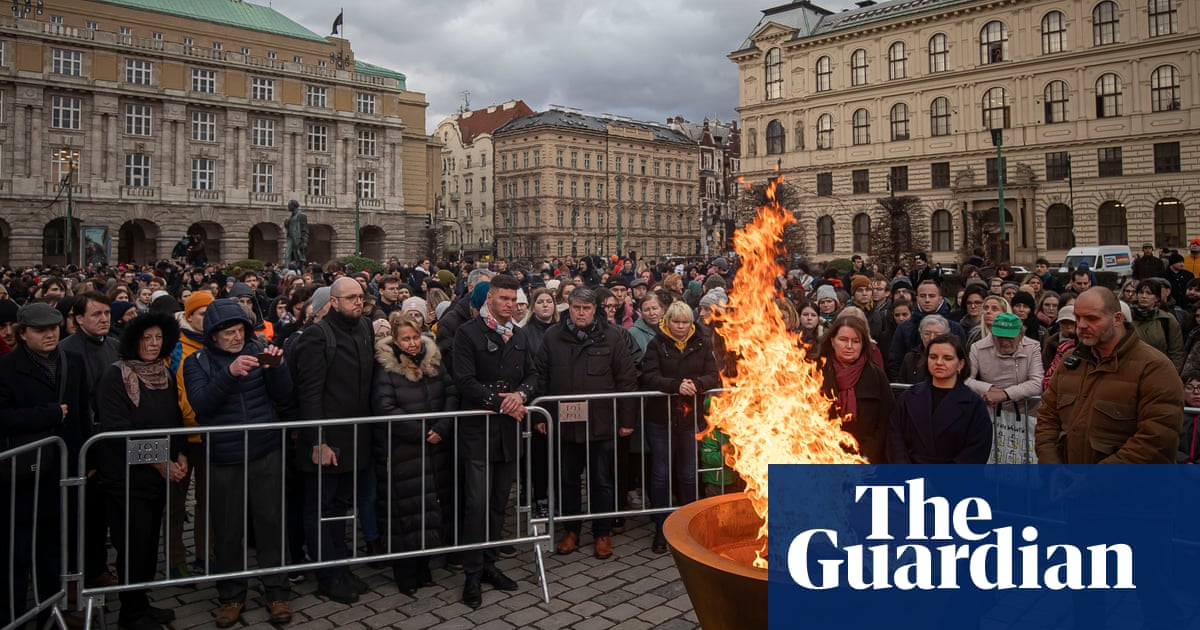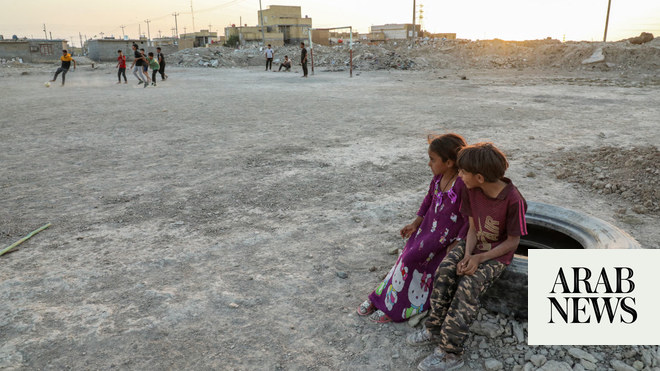
Security source: Main causes are speed, poor road conditions and lack of regulation, deterrents
Information International has observed a steady increase in daily traffic accident rates this year compared to the previous year
BEIRUT: During August alone, a total of 45 individuals were killed and 263 injured as a result of traffic accidents on Lebanon’s roads, according to figures published by the Internal Security Forces.
A security source with expertise in traffic affairs told Arab News: “In a country experiencing chaos and exceptional circumstances, these numbers are considered normal and not surprising, and may even be lower than the real figure.”
The traffic accidents have claimed the lives of entire families and left children orphaned. Collisions have been particularly common on highways, often involving marginalized children, the elderly, or motorcyclists.
Information International has observed a steady increase in daily traffic accident rates this year compared to the previous year. By the end of August 2023, there were approximately 1,507 traffic accidents in various regions, resulting in fatalities and injuries. Meanwhile, at the same time in the previous year, there had been a total of 1,482 traffic accidents.
The number of accidents in the first half of 2022 increased from 916 to 1,099 by the end of the first half of 2023, an increase of 26 percent. The death toll rose from 129 to 199, an increase of 54 percent. The number of injuries rose from 1,003 to 1,230, an increase of 22.6 percent.
Reviewing the number of fatalities that occurred over a decade and a half, from the year 2012 until June 2023, shows that the total number of traffic accident fatalities has exceeded 6,000.
Information International indicates that these statistics do not include minor traffic accidents that cause damage to vehicles without claiming lives.
The security source, who is not authorized to be named, links “traffic accidents to the poor conditions of roads in Lebanon, where potholes are abundant and darkness prevails due to frequent power outages. Additionally, there is a lack of regulation for vehicles whose owners do not adhere to the required driving standards. (This is) in addition to the decline in the security authorities’ control over the roads, except for the checkpoints erected to pursue wanted persons.”
The source added: “The increase in traffic accidents during August has its reasons, as there were about a million expatriates and tourists in Lebanon, and summer parties, late-night gatherings, and weddings have become more frequent. Meanwhile, most of the partygoers, especially young people, consume alcohol …
“According to our reviews, the primary cause of accidents is speeding, followed by poor road conditions, lack of proper lighting, distraction, lack of concentration, fatigue, and the presence of water on roads that have not undergone maintenance.”
Lebanon’s streets are becoming even more narrow with an increasing number of vehicles driving on them. There is also an increased presence of motorcycles, often unlicensed, that young people and small business owners opt for as they are unable to buy a car or wish to avoid traffic jams on the roads, but without taking into account general safety rules, such as wearing helmets.
The security source said: “Internal Security Forces’ radars are still on the roads, monitoring speeding on highways, and violators are being fined. But the fine does not exceed 50,000 Lebanese pounds, which is now equivalent to approximately half a dollar, while the cost of parking a car in front of restaurants and entertainment venues has reached 1 million Lebanese pounds. The 50,000-pound fine used to be worth around $30 before the value of the national currency collapsed. It was a deterrent back then and contributed to reducing traffic accidents.”
The security source places responsibility for not adjusting these fines on Parliament, “which seems to have priorities unrelated to traffic fines.”
The Internal Security Forces are facing shortages in their human resources, in addition to difficulties in mobility due to fuel expenses. The mechanical inspection center has also been out of operation for over a year. Used cars entering Lebanon and those driving on the roads, especially older ones, are no longer subject to inspection.
One of the consequences of the suspension of mechanical inspections is the lack of public road safety as the inspections reveal defects, especially in brakes, lighting, tire conditions, glass safety, and emissions, compelling vehicle owners to repair them.
Municipalities and the Ministry of Public Works and Transport have shifted blame around, placing responsibility for the accidents on everything from a failure to operate traffic lights with alternative power to the theft of manhole covers in the middle of the streets, resulting in the deaths of dozens of cyclists and car drivers during the night.
The security source does not overlook “the ethics of driving as a factor causing traffic accidents. The relevant agencies have noticed a decline in drivers’ respect for traffic laws, a tendency toward chaos, and a disregard for the state. In many cases, they lead themselves to death on the roads.”











